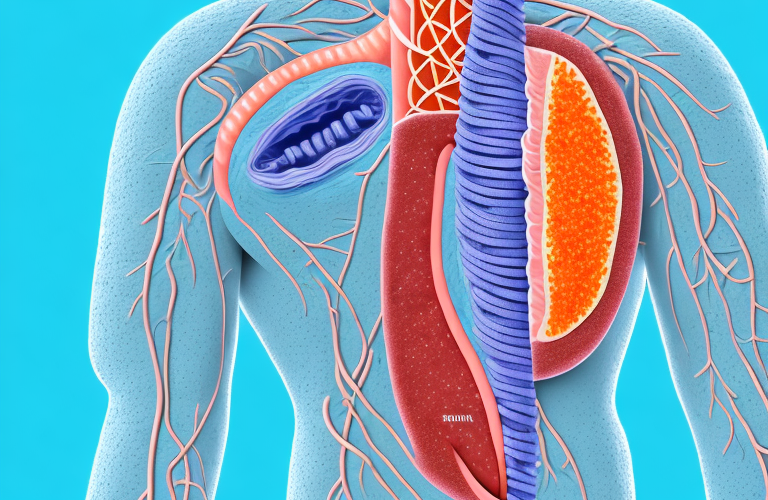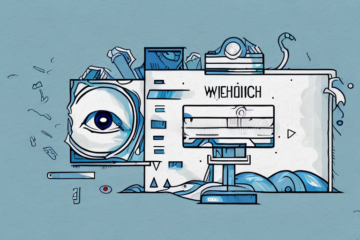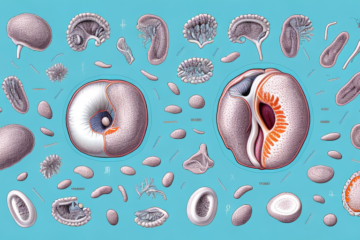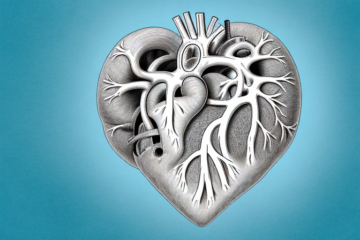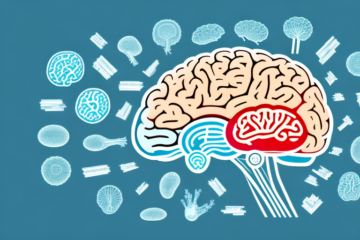Esophagitis is a health condition that occurs when the lining of the esophagus becomes inflamed, irritated, or swollen. This part of the body is a muscular tube that connects the throat to the stomach and plays a critical role in the digestive process. If left untreated, esophagitis can lead to severe complications, including bleeding, scarring, and difficulty swallowing. In this article, we will explore everything you need to know about this condition, from its causes and symptoms to treatment options and prevention strategies.
What is Esophagitis? Understanding the Basics
Esophagitis is most commonly caused by gastroesophageal reflux disease (GERD), which occurs when the muscle at the end of the esophagus doesn’t close properly, causing stomach acid to flow back into the esophagus. Other causes of esophagitis include infections, allergic reactions, and damage from medications or radiation therapy. The symptoms of esophagitis can range from mild to severe and may include heartburn, difficulty swallowing, chest pain, nausea, and vomiting.
It is important to seek medical attention if you experience symptoms of esophagitis, as untreated esophagitis can lead to complications such as strictures, ulcers, and bleeding. Treatment for esophagitis depends on the underlying cause and may include lifestyle changes, medications, or surgery. Lifestyle changes may include avoiding trigger foods, losing weight, and elevating the head of the bed while sleeping. Medications may include antacids, proton pump inhibitors, or corticosteroids. In severe cases, surgery may be necessary to repair damage to the esophagus.
Signs and Symptoms of Esophagitis
Common symptoms of esophagitis include difficulty swallowing, heartburn, chest pain, nausea, vomiting, and regurgitation. If the condition is left untreated, it may progress to more severe symptoms, including bleeding, ulcers, and strictures. In rare cases, esophagitis can lead to a potentially life-threatening condition called Barrett’s esophagus, which is a precursor to esophageal cancer.
Esophagitis can be caused by a variety of factors, including acid reflux, infections, medications, and autoimmune disorders. It is important to seek medical attention if you experience any of the symptoms mentioned above, as early diagnosis and treatment can prevent the condition from worsening. Treatment options may include lifestyle changes, medications, or in severe cases, surgery.
Causes of Esophagitis: Understanding the Triggers
As mentioned earlier, the most common cause of esophagitis is GERD, in which stomach acid flows back into the esophagus. Other causes of esophagitis include infections caused by bacteria, viruses, or fungi, as well as reactions to certain medications, such as aspirin, ibuprofen, and some antibiotics. Eosinophilic esophagitis is another form of the condition that is caused by an allergic reaction to certain foods, such as dairy products, wheat, or soy. Additionally, radiation therapy to the chest or neck area may cause esophagitis in some patients.
It is important to note that certain lifestyle factors can also contribute to the development of esophagitis. Heavy alcohol consumption, smoking, and obesity have all been linked to an increased risk of developing GERD and subsequently, esophagitis. Making changes to these lifestyle factors, such as quitting smoking and reducing alcohol intake, can help to prevent the onset of esophagitis and improve overall digestive health.
Types of Esophagitis: A Comprehensive Guide
There are several different types of esophagitis, each with its own set of causes and symptoms. The most common type is GERD-related esophagitis, which is caused by acid reflux from the stomach. Other types include eosinophilic esophagitis, which is an allergic reaction to food, infectious esophagitis, and medication-induced esophagitis. Reflux esophagitis can also be classified as non-erosive, erosive, and ulcerative.
Eosinophilic esophagitis is a type of esophagitis that is becoming increasingly common. It is an allergic reaction to certain foods, and symptoms can include difficulty swallowing, chest pain, and heartburn. This type of esophagitis is often diagnosed in children and young adults, and treatment may involve eliminating certain foods from the diet or taking medication to reduce inflammation.
Risk Factors and Complications Associated with Esophagitis
Some people are at a higher risk of developing esophagitis than others. Risk factors include a history of GERD, a weakened immune system, stress, smoking, and being overweight or obese. Complications of esophagitis include bleeding, ulcers, strictures, and Barrett’s esophagus, which can ultimately increase the risk of esophageal cancer.
It is important to note that certain medications can also increase the risk of developing esophagitis. These include nonsteroidal anti-inflammatory drugs (NSAIDs), bisphosphonates, and certain antibiotics. It is important to speak with your healthcare provider about any medications you are taking and their potential side effects.
Diagnosing Esophagitis: Tests and Procedures to Consider
If you are experiencing symptoms of esophagitis, your doctor may recommend a variety of tests and procedures to determine the underlying cause. These may include an upper endoscopy, in which a flexible tube with a light and camera is passed down the throat to examine the esophagus and stomach, a pH probe test, in which a probe is inserted into the esophagus to measure and monitor acid levels, and biopsy, which involves taking a small sample of tissue from the esophagus for analysis.
In addition to these tests, your doctor may also recommend imaging tests such as a CT scan or MRI to get a better look at the esophagus and surrounding tissues. Blood tests may also be ordered to check for signs of infection or inflammation. It is important to follow your doctor’s recommendations for testing and procedures to accurately diagnose and treat esophagitis.
Treatment Options for Esophagitis: Medications, Lifestyle Changes, and Surgery
Esophagitis can be managed and treated through a range of methods, including medication, lifestyle changes, and surgery. Medications that may be prescribed include acid blockers, proton pump inhibitors, antacids, and corticosteroids. Lifestyle changes that can help alleviate symptoms and prevent complications include avoiding trigger foods, losing weight, quitting smoking, and elevating the head of the bed. In rare cases, where complications are severe, surgery may be necessary.
It is important to note that the treatment plan for esophagitis may vary depending on the underlying cause of the condition. For example, if the esophagitis is caused by a bacterial infection, antibiotics may be prescribed. If it is caused by gastroesophageal reflux disease (GERD), a combination of medication and lifestyle changes may be recommended. It is important to work closely with a healthcare provider to determine the best course of treatment for your individual needs.
Home Remedies for Managing the Symptoms of Esophagitis
While medical treatment is essential for managing esophagitis, there are also a few home remedies that can alleviate symptoms and improve overall digestive health. These include eating smaller, more frequent meals, avoiding alcohol and caffeine, chewing food thoroughly, and drinking plenty of water. It is essential to speak to your doctor before trying any home remedies or complementary therapies.
In addition to the above-mentioned remedies, there are a few other things you can do to manage the symptoms of esophagitis. Elevating the head of your bed by a few inches can help prevent stomach acid from flowing back into your esophagus while you sleep. You can also try using over-the-counter antacids or acid reducers to neutralize stomach acid and reduce inflammation.
It is important to note that while home remedies can be helpful in managing the symptoms of esophagitis, they are not a substitute for medical treatment. If you experience severe or persistent symptoms, such as difficulty swallowing or chest pain, you should seek medical attention immediately.
Preventing Esophagitis: Tips for a Healthy Digestive System
Prevention is always better than treatment. To prevent esophagitis, it is essential to maintain a healthy lifestyle, avoid trigger foods and drinks, and maintain a healthy weight. Other tips for a healthy digestive system include drinking plenty of water, chewing your food thoroughly, avoiding lying down immediately after eating, and taking time to relax and de-stress.
In addition to these tips, it is also important to avoid smoking and excessive alcohol consumption, as both can irritate the esophagus and lead to esophagitis. It is also recommended to eat smaller, more frequent meals throughout the day, rather than large meals, to reduce the amount of acid produced in the stomach.
If you are experiencing symptoms of esophagitis, such as heartburn, difficulty swallowing, or chest pain, it is important to seek medical attention. Your doctor may recommend lifestyle changes, medication, or other treatments to help manage your symptoms and prevent further damage to your esophagus.
Living with Esophagitis: Coping Strategies and Support Resources
Living with esophagitis can be challenging, but there are several strategies and support resources available to help manage the condition and improve your quality of life. These may include joining a support group, practicing stress-reducing techniques, such as yoga or meditation, and seeking professional counseling or therapy. It is also essential to work closely with your healthcare provider to develop a comprehensive treatment plan that meets your unique needs.
In addition to these strategies, making dietary changes can also be helpful in managing esophagitis. Avoiding trigger foods, such as spicy or acidic foods, can help reduce symptoms. Eating smaller, more frequent meals and avoiding lying down for at least two hours after eating can also be beneficial. It is important to work with a registered dietitian to develop a personalized meal plan that meets your nutritional needs while also managing your symptoms.
Conclusion
Esophagitis is a common and potentially serious condition that affects people of all ages and backgrounds. By understanding the causes and symptoms of this condition, as well as the treatment options and prevention strategies available, you can take steps to manage the condition and improve your overall health and well-being.
It is important to note that esophagitis can be caused by a variety of factors, including acid reflux, infections, and certain medications. Therefore, it is crucial to work with your healthcare provider to determine the underlying cause of your esophagitis and develop an appropriate treatment plan.
In addition to medical treatment, lifestyle changes such as avoiding trigger foods, quitting smoking, and maintaining a healthy weight can also help manage esophagitis symptoms and prevent future flare-ups. By taking a proactive approach to your health, you can minimize the impact of esophagitis on your daily life and improve your overall quality of life.

